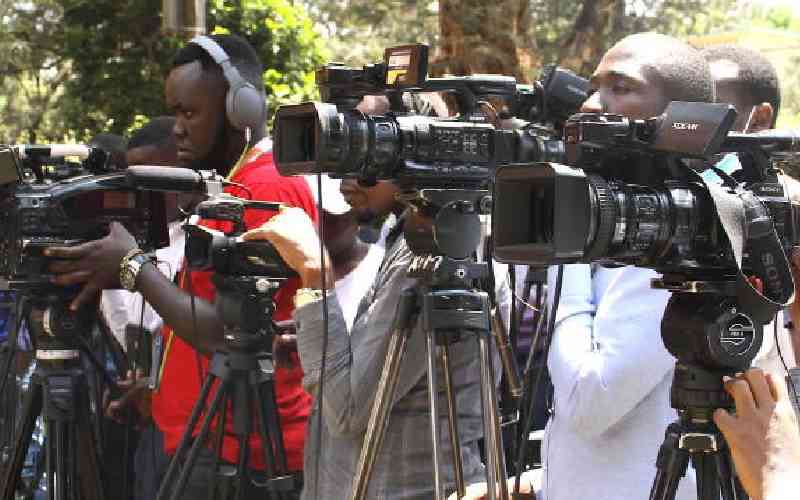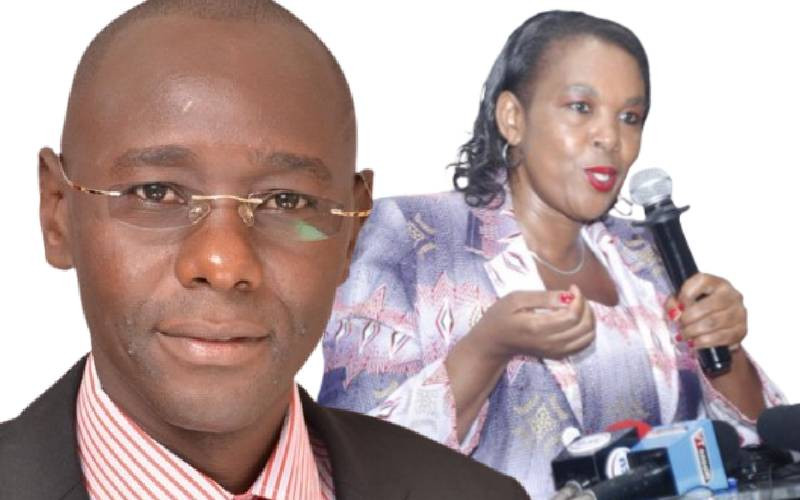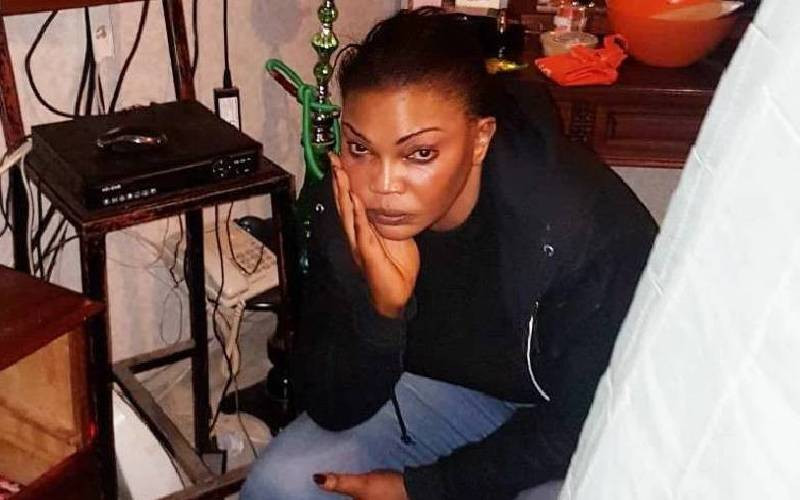
Since the beginning of 2023, traumatising stories about loss of lives from road accidents, murder, Shakahola massacre, and now public demonstrations have filled Kenyan media space. Hardly a day passes without harrowing stories being aired in the media. While members of the public sometimes get overwhelmed by the depressing news and may choose to withdraw from consuming such content, journalists have to bear the brunt of traumatic experiences to keep the public informed. By the time a single traumatic story goes on air, a good number of journalists including reporters, camera crews, producers and editors are staring in the face of emotional and psychological burnout.
Reporters and camera crews spend all their energy sometimes on graphic material as they get the raw content from far afield. They directly encounter scary, horrific, traumatising, and life-threatening scenes, which can culminate in stress and depression.
Journalists spent time with patients and in hospitals covering stories on Covid-19, risking their lives almost during the entire pandemic period to keep the public informed. A study by the Reuters Institute for the Study of Journalism and the University of Toronto showed that around 70 per cent of journalists who covered the pandemic suffered from psychological stress.Recently, we witnessed how Kenyan journalists' lives are endangered while covering public demonstrations.
Journalists on official duty have been battered and injured while others have lost their valuable work equipment. They have also witnessed brutal attacks and murder of citizens during the demonstrations. These experiences together with the pressures of life expose journalists to stress, depression, and sleep disorders, which may lead to poor mental health if not properly managed.
In sub-Saharan Africa, where many people are inflicted by human suffering from hunger, war, political violence, crime, and massive loss of lives, journalists, as first responders, are exposed to panic, anxiety, fatigue, stress, hostility, harassment and brutality from law enforcement agencies. A study in 2022 revealed that many journalists in the region have experienced mental disorders unknowingly. Globally, journalists encounter soaring upsetting incidences from terror attacks, war, civil unrest, and natural calamities such as floods and hunger, all with far-reaching psychological effects. As first responders to these calamities, journalists more than ever before need mental support care.
Society should provide journalists with adequate social and family support in order for them to work optimally. During training, journalists should be prepared with crisis reporting skills. Most importantly, more resources and institutional support should be created to help journalists deal with stress and trauma. Journalists' support centres and networks at institutional, local, and regional levels help journalists share personal experiences and lower mental strain.
According to the Reuters Institute for the Study of Journalism, a journalist should listen to themselves for any signs of mental challenges and seek the help of a specialist or take a break from work to manage the problems.
Ms Akong'o is a lecturer of Communication and Media Studies at Rongo University
 The Standard Group Plc is a
multi-media organization with investments in media platforms spanning newspaper
print operations, television, radio broadcasting, digital and online services. The
Standard Group is recognized as a leading multi-media house in Kenya with a key
influence in matters of national and international interest.
The Standard Group Plc is a
multi-media organization with investments in media platforms spanning newspaper
print operations, television, radio broadcasting, digital and online services. The
Standard Group is recognized as a leading multi-media house in Kenya with a key
influence in matters of national and international interest.
 The Standard Group Plc is a
multi-media organization with investments in media platforms spanning newspaper
print operations, television, radio broadcasting, digital and online services. The
Standard Group is recognized as a leading multi-media house in Kenya with a key
influence in matters of national and international interest.
The Standard Group Plc is a
multi-media organization with investments in media platforms spanning newspaper
print operations, television, radio broadcasting, digital and online services. The
Standard Group is recognized as a leading multi-media house in Kenya with a key
influence in matters of national and international interest.






